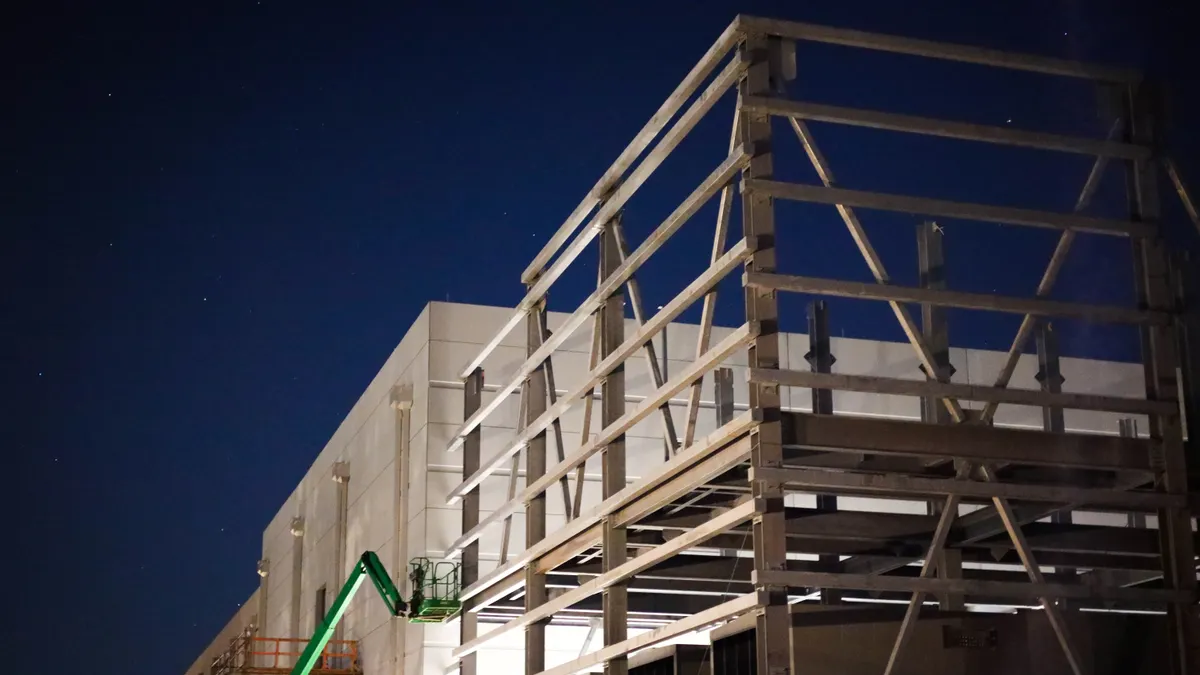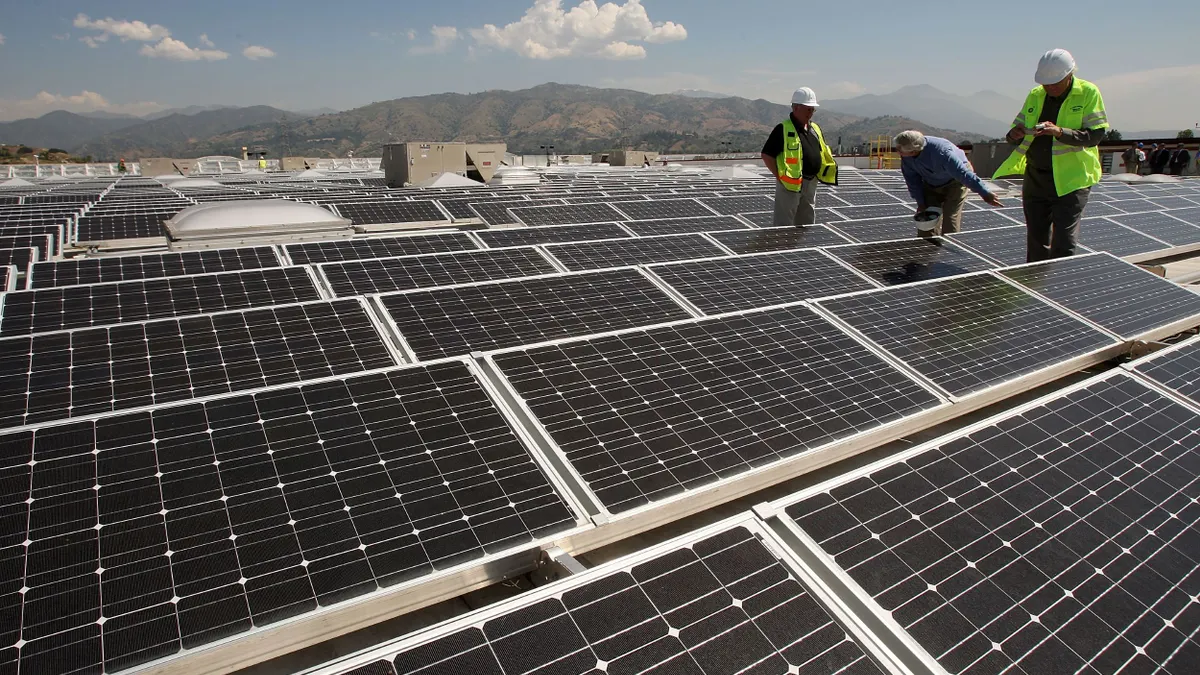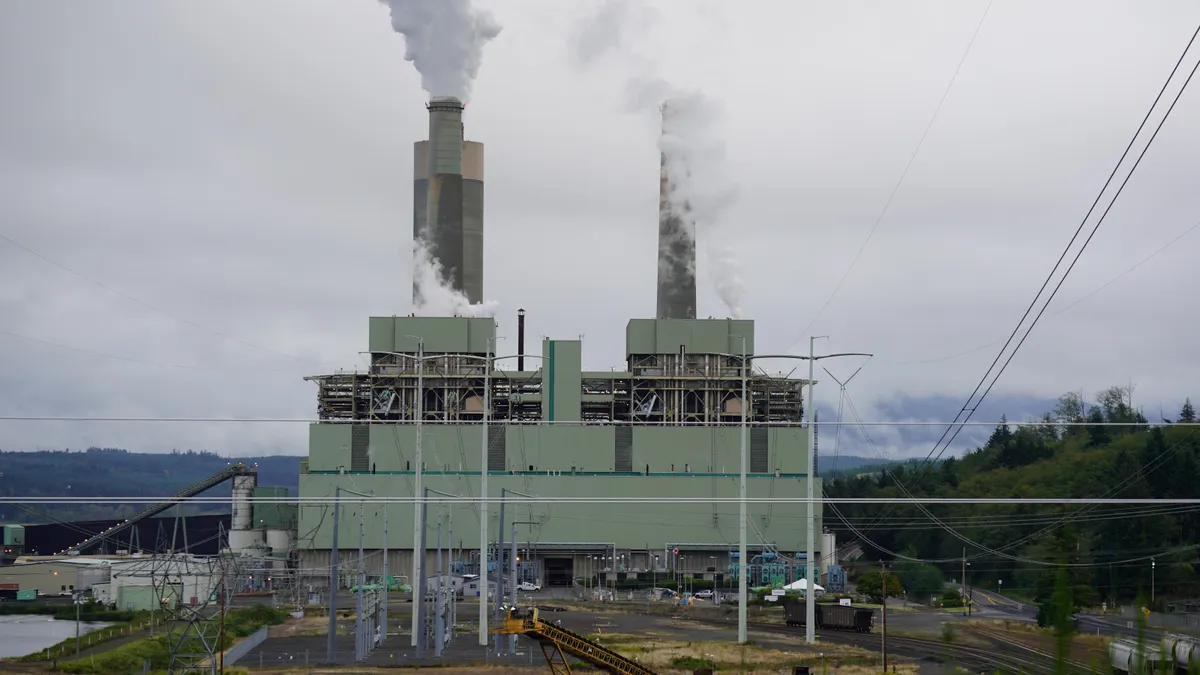Perceived threats to the reliability of the bulk power system could push federal energy regulators to take action to support baseload generators, the chairman of the Federal Energy Regulatory Commission told lawmakers Thursday, but it is too early for specifics on potential policies.
Acting FERC Chairman Neil Chatterjee told a subcommittee of the House Energy and Commerce Committee that baseload compensation is high on the priority list at FERC, but the agency would have to establish a regulatory record on reliability threats before designing market changes.
“The commission is fuel-neutral,” Chatterjee told lawmakers. “We will look to ensure that as our grid undergoes this transition to be sure that we evaluate the attributes of fuel sources to see what values they provide and see if there is a demonstrated need for reliability, whether or not those things can be compensated.”
The comments came less than a month after the Department of Energy released its highly-anticipated grid reliability study. That report found that the retirement of baseload coal and nuclear generators has not threatened reliability to this point, but it also recommended that FERC explore how to better compensate generators for their resiliency attributes if reliability comes under threat in the future.
The study’s findings have quickly become a major talking point for the power sector, dominating a confirmation hearing for two FERC appointees last week. There, Richard Glick, a Democratic senate aide nominated to the agency, reiterated the study conclusions, saying FERC “should keep an eye on” potential reliability issues.
Chatterjee seized on those comments at the House hearing, saying “even [Glick] admitted that we have to closely monitor this,” an allusion to the nominee's partisan affiliation. But the chairman, who will hand his gavel to nominee Kevin McIntyre if he is confirmed, stopped short of outlining potential changes to market compensation.
"If there was some demonstrated threat to reliability, there would be options available to the commission to take action. But the key word there is ‘if.’”

Neil Chatterjee
Acting Chair, FERC
“I don’t want to get that far ahead,” he told a group of reporters after the hearing. “If there was some demonstrated threat to reliability, there would be options available to the commission to take action. But the key word there is ‘if.’”
“We'd have to have a record, we'd have to have a docket, analysis, and then make that determination going forward,” Chatterjee added.
The FERC chair also declined to specify how the commission would evaluate potential reliability threats, saying only that “we have capacity to do that at the commission working with folks at DOE and elsewhere.” But he assured lawmakers that the issue was a high priority at FERC, even with a hefty backlog of energy infrastructure proposals to approve after the commission has been without a quorum since February.
“We can walk and chew gum at the same time,” he said.
If the commission does determine reliability is threatened, it has wide authority to change market compensation, according to Andrew Weissman, senior counsel at the Washington law firm Pillsbury.
“They could, for example, come up with some criteria for determining what generating units … are essential for adequacy of future service,” Weissman told Utility Dive after the confirmation hearing last week. “Then, with respect to those units, they could create a new category to provide cost-of-service recovery, just as they do for reliability must-run units currently, and socialize the costs of providing that cost recovery.”
Another potential policy could be to devise adders to capacity payments for plants deemed essential for resiliency.
“In the past they've approved a fixed adder in MISO that MISO determined was necessary for the future operation of the grid,” Weissman said. “They could — and in my view they actually should — seriously consider providing a super capacity payment as a significant add-on to the capacity payment for units they conclude are essential to the long-term adequacy of service in the wholesale markets.”
Reliability and renewables
As FERC evaluates future threats to the grid, Gerry Cauley, the CEO of the North American Electric Reliability Corporation, told the subcommittee that the present reliability of the bulk power system is strong and improving. Weather-related outages, however, appear to be increasing in frequency and severity, and changes to the resource mix could pose reliability challenges in the future.
Cauley echoed Weissman’s recommendation in his opening statement to lawmakers. Though reliability is not threatened at present, he advocated that FERC and other policymakers get out in front of the issue.
“FERC, states and markets should review economic and market factors driving baseload generation into early retirements and provide tangible incentives for maintaining a diverse and resilient resource mix,” Cauley said. “Markets should explicitly value and price capacity, essential reliability services and enhanced resilience through fuel diversity.”
The potential threats to grid reliability do not stem directly from the addition of more renewable energy, Cauley said. Asked by Rep. Joe Barton (R-TX) if renewable portfolio standards of 50% or more could threaten reliability, the NERC CEO said the “technology is there today,” but enhanced grid coordination is needed.
"From what we're seeing, [50% renewables is] technically feasible, but there are a lot of challenges."

Gerry Cauley
CEO, NERC
“From what we're seeing, it's technically feasible, but there are a lot of challenges,” Cauley said. “I gave the example of August a year ago in California there was a wildfire that caused a transmission line to trip and 1,200 MW of solar thought it was the system collapsing and all shut down at the worst time. So there has to be coordination.”
Cauley emphasized that all new resources “should have the capability to support reliability services” typically provided by large fossil plants.
“Wind and solar do not inherently come with the controls to provide frequency response and voltage response but technically we've been working with vendors to show them some of the weaknesses and things that need to be done,” he said.
FERC could soon take action on that front, Chatterjee said in his prepared testimony for lawmakers.
“FERC is considering requiring all resources newly interconnecting to the grid to install and enable primary frequency response capability as a condition of interconnection,” he wrote. “While this proposal is still under review, in one of the first orders issued upon restoration of a quorum, my colleagues and I issued a notice seeking further information from industry and interested stakeholders on primary frequency response capability.”
Dodging the climate question
Lawmakers at the hearing questioned the energy officials on natural disaster response in the wake of Hurricanes Harvey and Irma, which knocked out power to millions in Texas and Florida.
The energy officials present at the hearing lauded the efforts of electric utility workers and promised more attention to resiliency technology research, but largely dodged the question of whether climate change played a role.
Asked by Rep. Bobby Rush (D-IL) if climate change poses a threat to energy infrastructure, the officials focused on the impacts, rather than the cause.
“I think it’s important as we confront these storms and the impacts they’ve had at our grid that we ensure as the grid transforms that we can bounce back from these types of events and have a really reliable and resilient grid,” Chatterjee said. “It's important that in response to these weather events that we have a reliable and resilient grid and I think the role of the commission will be to look at that.”
Patricia Hoffman, the DOE undersecretary for science and acting assistant secretary for electricity, also left climate science out of her answer.
“I believe it is the duty and responsibility of the electricity sector to be forward leaning and to think about different scenarios and events that will happen, build it off the knowledge base of what we've experienced and look about how we build in resilience moving forward,” she said.
"[I]n 8 years, my time as a CEO, it seems we're seeing an increase in the magnitude and severity of events — flooding and storms."

Gary Cauley
CEO, NERC
Acknowledging the effects of climate change while ignoring its human causes has become common for Trump administration officials. Throughout their nomination hearings, EPA Administrator Scott Pruitt and Secretary of Energy Rick Perry each employed similar rhetoric, but Homeland Security Advisor Tom Bossert gave the clearest example in a press briefing on Irma recovery on Monday.
“We continue to take climate change seriously,” Bossert said, “not the cause of it, but what we can see right now.”
Regardless of the administration’s position, scientists overwhelmingly agree that human activity is the primary cause of climate change and that it will pose greater threats to the power grid and other infrastructure by strengthening storms and altering other weather patterns.
NERC’s Cauley came closest to acknowledging that reality in the hearing. While he said understanding climate change is outside of his organization’s expertise, he conceded that something appears to be happening to weather patterns.
“We do see in recent years — in 8 years, my time as a CEO, it seems we're seeing an increase in the magnitude and severity of events — flooding and storms,” he said. “We have to think about, in the design of our systems and our preparations, how do we prepare for more extremes than we've seen recently?”
While Chatterjee did not comment directly on climate change, Weissman said FERC has broad authority to address that issue — particularly if it links carbon emissions to reliability risks for the grid.
“FERC has plenty of authority to take into account impacts on the environment in its ratemaking,” Weissman said. “Obviously whether it should or not is something people have strong views about, but if you're asking the lawyer's question of whether they have authority to act, I think the answer is certainly yes.”





















